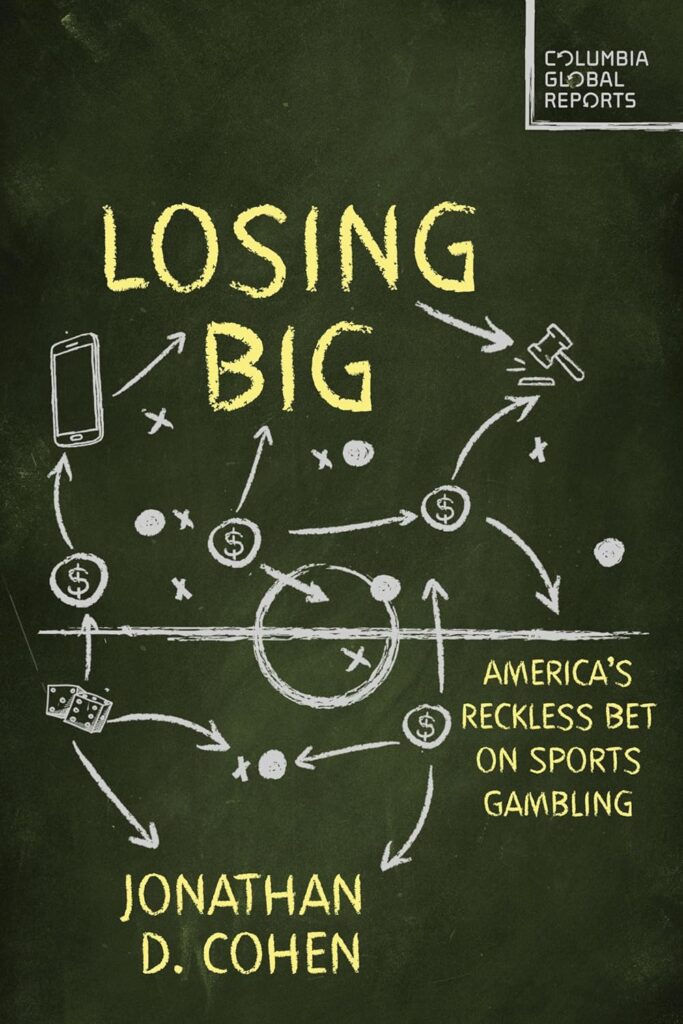The Rise of Sports Betting in America: A Closer Look at the Impact of Legalization
In 2018, the United States Supreme Court opened the floodgates for states to legalize sports betting, leading to an unprecedented surge in the industry. Almost 40 states have jumped on the bandwagon, eager to tap into this lucrative revenue source. Companies like FanDuel and DraftKings have emerged as dominant players, capitalizing on the new landscape of sports gambling.
Gambling Statistics and Public Health Implications
Fast-forward to 2023, and roughly one in five American adults participated in sports gambling, collectively wagering an astonishing $121 billion. This figure eclipses spending on movies and video games combined, indicating just how mainstream the activity has become.
The rise of online sports gambling has changed the game completely. It allows for immediate betting through smartphones, enabling companies to target individuals with personalized marketing strategies. Dynamic pricing means that gamblers can receive offers tailored to their betting habits—often leading individuals, especially young men, to bet more than they can afford. This has raised significant public health concerns, as gambling addiction becomes a pressing issue for many.
Legislative Landscape and Industry Influence
The rapid legalization of sports betting has been influenced by intense lobbying from the gaming industry. States have created frameworks that largely benefit sportsbooks while sidelining the well-being of players. The speed at which these regulations were rolled out has raised eyebrows, prompting questions about their long-term consequences.
Historian Jonathan D. Cohen, in his book Losing Big: America’s Reckless Bet on Sports Gambling, delves into this evolution—highlighting how sportsbook executives have even played roles in drafting legislation. According to Cohen, while he acknowledges that sports gambling can be enjoyable and should be legal, its implementation has been "reckless." He articulates the concern that many young male gamblers are particularly vulnerable, facing both financial harm and addiction as a result of poorly structured policies.
Perspectives on Advocacy and Regulation
One organization, Stop Predatory Gambling, advocates for the criminalization of gambling, arguing that it should remain illegal. Cohen, who collaborates with this group in advocacy efforts, differentiates his stance. He believes in the potential benefits of legalized sports gambling, but critiques the methods of its implementation and the neglect of public health considerations.
Cohen notes, "A small percentage of Americans—just one percent—may suffer from gambling issues, but the broader implications indicate a systemic problem." He likens the issue to a river running through a city, where the infrastructure facilitates people falling in rather than preventing it—suggesting that the conversation needs to shift from individual responsibility to collective solutions.
Advertising and Public Perception
With the surge of sports betting comes an avalanche of advertising. Congressman Paul Tonko (D-New York) has taken a stand by introducing legislation to limit such advertising, citing concerns over normalization and accessibility. Cohen echoes this sentiment, suggesting a regulated approach like the "whistle to whistle" ban seen in other countries, where advertising is restricted during sporting events. However, he recognizes that the advertising landscape is already saturated, and the focus might need to shift toward establishing stronger guardrails.
The Future of Sports Betting Legislation
Despite the overwhelming trend toward legalization in almost every state, a few like Utah maintain staunch opposition to gambling in any form. Cohen notes that as adjacent states continue to legalize, the pressure mounts for those that have yet to allow it. Legislators often see gambling revenue as "free money," reinforcing the narrative that any opposition is economically unfounded.
However, Cohen emphasizes the hidden costs associated with gambling. Legalization often correlates with increases in bankruptcies, credit delinquencies, and more severe social issues such as addiction and its devastating effects on mental health. While some individuals may not consider themselves "addicts," many find themselves in precarious financial situations due to episodic gambling behavior.
Suggested Reforms: Guardrails and Industry Accountability
Cohen proposes several proactive measures that could be taken to prevent gambling-related issues. These include implementing deposit limits, mandatory waiting periods before bets can be placed, and restrictions on the types of games available to bet on. Such measures could potentially shield at-risk individuals from falling deeper into gambling addiction.
Furthermore, he stresses the importance of managing incentives within the industry. If there were a system for information sharing among sportsbooks, it would allow for safer gambling practices, preventing problematic gamblers from simply hopping between different platforms.
The landscape of sports betting in America is complex, marked by rapid growth, specialized targeting, and significant societal implications. The pressing public health crisis intertwined with this new recreational activity demands careful consideration and thoughtful reforms to safeguard vulnerable individuals, ensuring that the excitement of sports betting doesn’t come at an unacceptable cost.


